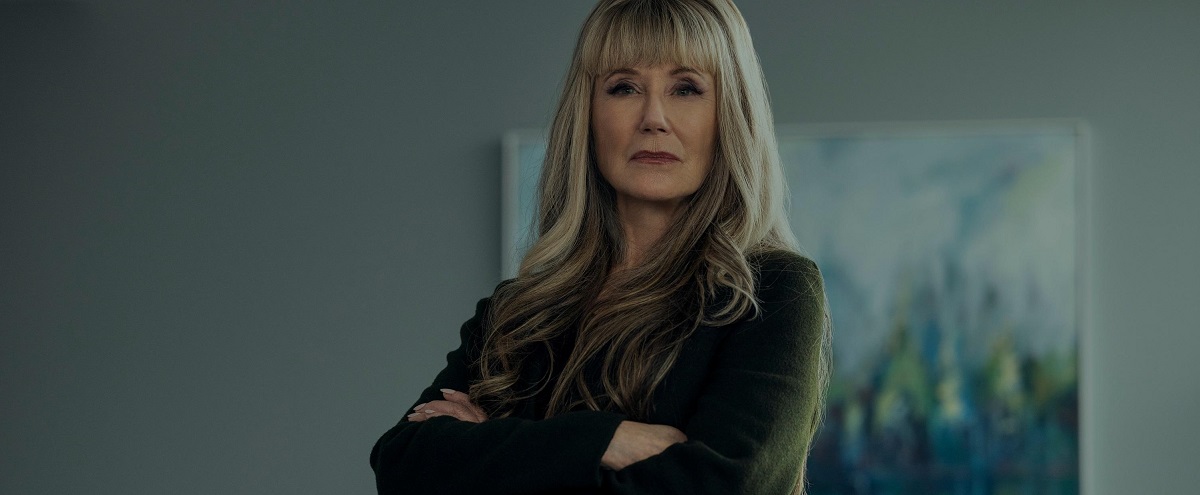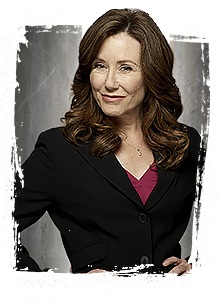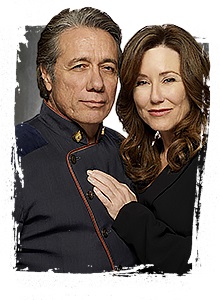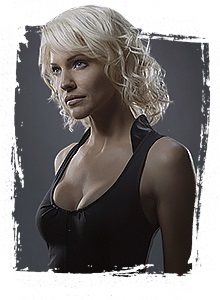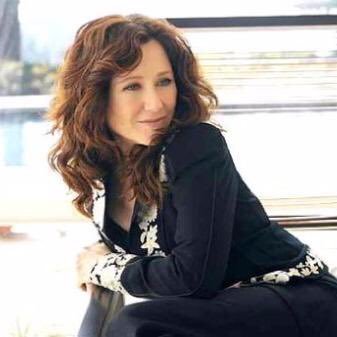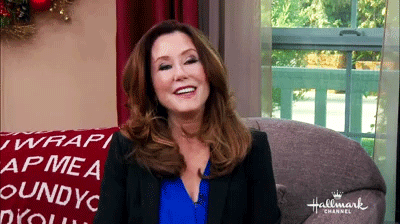
The Cherry Orchard
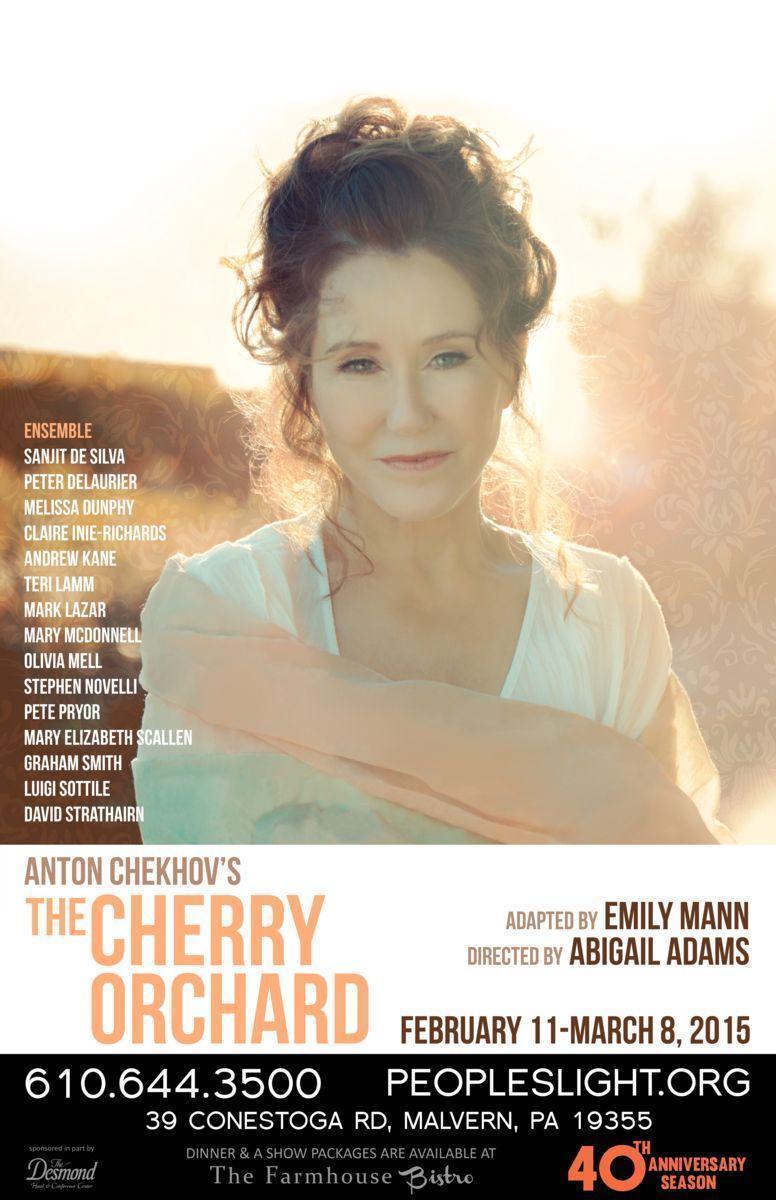
Character: Lyubov Andreyevna Ranevskaya
Created by: Anthon Chekhov
Directed by: Abigail Adams, (Adapted by) Emily Mann
Produced by: Zak Berkman
Cast Members: David Strathairn, Olivia Mell, Pete Pryor, Claire Inie-Richards, Teri Lamm, Mary Elizabeth Scallen, Peter DeLaurier, Luigi Sottile, Graham Smith, Sanjit De Silva, Stephen Novelli, Mark Lazar,
Venue: People's Light
Production Dates: February 11, 2015 - March 8, 2015
The play concerns an aristocratic Russian woman and her family as they return to their family estate (which includes a large and well-known cherry orchard) just before it is auctioned to pay the mortgage. While presented with options to save the estate, the family essentially does nothing and the play ends with the sale of the estate to the son of a former serf; the family leaves to the sound of the cherry orchard being cut down. The story presents themes of cultural futility – both the futile attempts of the aristocracy to maintain its status and of the bourgeoisie to find meaning in its newfound materialism. In reflecting the socio-economic forces at work in Russia at the turn of the 20th century, including the rise of the middle class after the abolition of serfdom in the mid-19th century and the sinking of the aristocracy, the play reflects forces at work around the globe in that period.
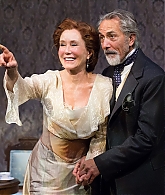
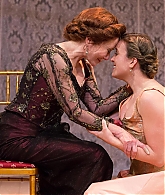
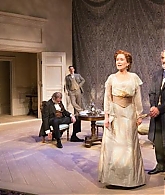
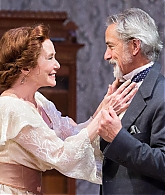
Trivia
→ The role of Anya, McDonnell’s character’s daughter, is played by McDonnell’s real life daughter Olivia Jane Mell.
→ McDonnell and Strathairn have previously been working together on Evidence of Blood, Passion Fish, Sneakers, Matewan.
Reviews
♦ McDonnell delivers a stunning performance as Lyubov, the widowed matriarch of the family who returns from Paris with her daughter, Anya, played by McDonnell’s real-life daughter, Olivia Mell. McDonnell’s character has a smile and a kind word for almost every character on stage, and spends lavishly, despite being nearly bankrupt. – Chris Cameron
♦ McDonnell is magnificent as the epitome of the out-of-touch aristocratic landowner, cheerfully fluttering around the stage, gushing about her childhood memories of the cherry orchard, grieving for the loss of her son, charmingly tossing off cruel remarks to others with a careless candor (“You’ve gotten old and ugly!”), refusing to deal with the inevitable, and in denial about the reversal of fortune that has befallen her, her family, and her entire class, while awaiting a deus ex machina that never comes. – Debra Miller
♦ Still, there are many touching moments. McDonnell in particular is responsible for many of them. She’s a fascinating Lyubov – less warm than other actresses I’ve seen in the role, but I’m not sure warmth is what’s called for. What McDonnell brings is something odder – still lovely and alluring, with distracted, breathless fragility that is both appealing and off-putting. – Mark Garvin
♦ Mary McDonnell, as Ranevskaya, is particularly good at being gracious and kind to everyone and speaking to all in vernacular and not in the stunted literary speech that plagued Chekhovian adaptations, and their productions, for most of the last century. […] Mary McDonnell brings a lot of heart to Ranevskaya. We see the generosity and the merriment in the woman, more worldly than her brother and neighbors yet congenial and kindly. […] McDonnell captures the woman who can amuse the drawing rooms of Paris while endowing Ranevskaya with an Everywoman side that makes her want to share her gaiety and contentedness in everyday life. – N. Zoren
♦ I can’t begin to say enough about the remarkable performance of Mary McDonnell as the beautiful and gracious Lyubov. She is charming and kind, trying to please everyone with a smile, a touch, a genuine concern for all around her, even though it is folly to think she can survive without money. We are mesmerized by Lyubov’s story, as much by her indiscreet loves as by the loss of her young son. – Frank Burd
